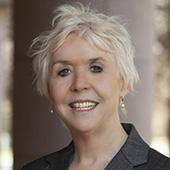Learning Disabilities and Behavioral Disorders
Department of Special Education
The Department of Special Education offers a doctoral (Ph.D.) degree with a concentration in Learning Disabilities and Behavior Disorders (LD/BD). This program will prepare you to work in a variety of settings including higher education, leadership roles in schools and districts, and further research into the practices and interventions that effectively treat learning disabilities. This program focuses substantial coursework and research in the areas of reading and math disabilities as well as school-based behaviors.
During your studies, you will learn about trends and effective interventions used for individuals with learning disabilities and behavioral disorders. In addition, you will have the opportunity to explore courses in at least two other areas of Special Education, research methods, professional coursework, and courses outside the Department of Special Education.
You will be encouraged to become involved in research projects under the direction of faculty in the Department of Special Education. The program generally takes four years of full-time study to complete.
Program Overview
The Learning Disabilities and Behavioral Disorders (LD/BD) Ph.D. program prepares students for careers in both university and clinical settings. There are several goals that our program aims to achieve:
- We seek to prepare graduates with strong knowledge of LD/BD trends, issues, and interventions in the academic and behavioral domains.
- We seek to prepare strong researchers in special education with particular emphasis on improving the lives of students with LD/BD.
- We seek to prepare graduates with strong communicative ability to present major research findings and disseminate information in order to improve educational quality for students with LD/BD.
- We seek to prepare leaders and researchers in special education who are socially responsible, ethical, and who use culturally responsive practices in their work.
Students admitted to the LD/BD doctoral concentration typically begin their studies in the fall semester, and are encouraged to register on a full-time basis. Doctoral students typically complete their degrees in four years of full-time study.
Doctoral students complete coursework related to LD/BD specialization, professional coursework, research coursework, and dissertation. Doctoral students are encouraged to become involved in research projects, write for publications, and participate in dissemination conferences.
Program Courses
Doctoral Degree Components – 54-57 hours minimum
- Specialization Core: 12 hours
- Professional Core: 18 hours
- Research Core: 18-21 hours
- Dissertation: 6 hours minimum
Specialization Core Courses (12 hours)
Coursework must include at least two courses out of the following three:
- SED 396C Trends & Issues in Learning Disabilities/Behavioral Disorders (spring)
- SED 395D Seminar in Reading (spring [every alternate year])
- SED 395D Seminar in Mathematics (spring [every alternate year])
To gain breadth of knowledge, students will take the remaining credits of designated coursework outside the concentration area or outside of the department.
Professional Core (18 hours)
- SED 695S A & B Professional Seminar (taken over fall and spring semesters of Year 1)
- SED 398T College Teaching (Year 2)
- SED 380 Diversity and Disability: Continuing Perspectives; or SED 380 Diversity, Equity, and Disability
- SED 696 A and B Research Mentoring (taken over two semesters)
Research Core (18-21 hours)
Students in the LD/BD program must take:
- SED 383 Intervention Research in Learning Disabilities (fall)
- EDP 380C Fundamental Statistics – prerequisite, as needed
Additional coursework must include at least two courses out of the following three:
- Qualitative Research Design and Data Analysis
- Quantitative Research Design and Data Analysis
- Single-Subject Research Design
Coursework must include:
- Seminar in Scholarly/Grant Writing
Select other research courses in consultation with your academic advisor to be sure that you will fulfill research requirements in your concentration area.
Dissertation (6 hours minimum)
All doctoral students are required to complete a dissertation. This includes conducting original research with direction from a dissertation supervisor. The dissertation will be submitted and defended to a dissertation committee consisting of faculty in the field of study.
- SED 399, 699, or 999 R and W
Faculty

Develops and evaluates interventions and assessments using technology to support the academic success of Latinx students and other students whose home language is not English.

Researches instructional strategies and assistive technology adaptations for students with learning disabilities, specifically in Mathematics.

I work to improve interventions for students with dyslexia and other forms of significant reading difficulty, better understand assessment and assessment practices that best inform instruction, and improve educators' ability to make data-based decisi...

Focuses on the instructional design and efficacy testing of early STEM interventions for at-risk learners, including English learners and students marginalized and underserved communities.

Focuses on embedding high-level cognitive skills training into academic instructions for children with severe learning disabilities that address the cognitive impairments underlying those disabilities.

Develops and tests interventions for students with mathematics difficulties, emphasizing word-problem solving, mathematics writing, data-based decision making, and the vocabulary within mathematics.
Accepting new students

Focuses on effective interventions for students with and at-risk for reading disabilities, with a focus on intensifying intervention through data-based instruction and attention to motivational processes

Investigates effective interventions for a diverse group of students with reading difficulties and students who are English language learners.

Additional Resources
Program Starts: Fall
Deadline to Apply:
December 1, Priority
Rolling Admissions
Credit Hours Required: 57
Program Location: On Campus
GRE Required? No

Area Coordinator
Sharon Vaughn

Start your ApplyTexas application today to take the next steps towards your future as a Longhorn.
Let us know what your academic interests are within the College of Education and we’ll be in touch.


